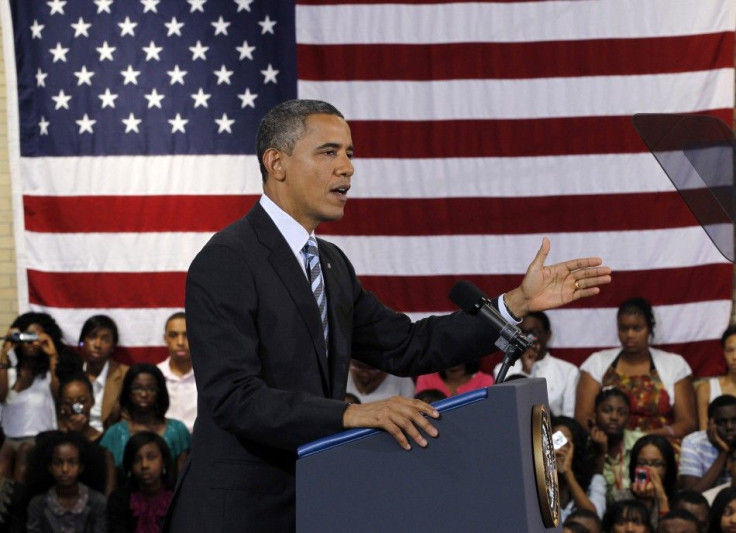Obama Vows No Safe Haven for al Qaeda

President Barack Obama on Friday hailed the killing of American-born militant Anwar al-Awlaki as a tribute to years of counterterrorism cooperation with Yemen and proof that al Qaeda and its allies will find no safe haven anywhere in the world.
Awlaki, identified by U.S. intelligence as chief of external operations for al Qaeda's Yemen branch and a Web-savvy propagandist for the Islamist cause, was killed in a CIA drone attack in a remote Yemeni town, U.S. officials said.
The death of Awlaki is a major blow to al Qaeda's most active operational affiliate, Obama said, depicting it as another success against a broader militant network still reeling from the U.S. killing of Osama bin Laden five months ago.
Progress against al Qaeda could help Obama polish his national security credentials as he seeks re-election in 2012 and fend off Republican efforts to depict him as a weak global leader and commander-in-chief.
But the Obama administration drew immediate condemnation from U.S. civil libertarians who said it was illegal to carry out the targeted killing of a U.S. citizen without due process of law.
U.S. and Yemeni officials said they also believed a second al Qaeda operative, Samir Khan, an American of Pakistani descent, was killed at the same time. Khan was editor of Inspire, a magazine-style publication that had become al Qaeda's principal English-language propaganda vehicle, a U.S. source said.
It was the latest in a series of deadly U.S. strikes against violent militants, including the raid on bin Laden's Pakistani compound in May and a late August drone attack that killed the organization's recently promoted No. 2.
This is further proof that al Qaeda and its affiliates will have no safe haven anywhere in the world, Obama said at the Fort Myer military base in Virginia, outside Washington.
Obama acknowledged, however, that al Qaeda in the Arabian Peninsula remained dangerous and vowed to stay vigilant.
OBAMA MUM ON DETAILS
Obama, asked in a U.S. radio interview whether he had personally ordered Awlaki's killing, said: I can't talk about the operational details.
But the president and his aides left little doubt it was a U.S. operation with significant Yemeni cooperation.
This success is a tribute to our intelligence community and to the efforts of Yemen and its security forces who have worked closely with the United States over the course of several years, he said at Fort Myer.
The White House made clear that despite Awlaki's killing, it was sticking to its insistence that Yemen's President Ali Abdullah Saleh begin a transfer of power immediately.
Saleh, a U.S. ally in the fight against al Qaeda in the Arabian Peninsula, has clung to power despite months of popular protests, factional violence and international pressure.
Awlaki was a American-born cleric of Yemeni descent whom U.S. officials said headed al Qaeda's most dangerous offshoot and had a role in at least two failed plots to target the United States.
This was a terrorist who wasn't simply a propagandist, but over the years had become an operational figure who was increasingly focused on planning and carrying out attacks against the United States and our allies, a U.S. defense official said. A very bad man just had a very bad day.
Independent experts said Awlaki was more important as a recruiter for the al Qaeda cause in places like the United States and Britain, and while his demise was a big loss to the group it might not hurt its activities in the oil-rich Gulf.
The U.S. government branded Awlaki a global terrorist last year. He had been targeted more than once by U.S. forces authorized to kill him because of what Washington believed was the role he played in radicalizing English-speaking Muslims and because of his alleged role in plots to attack U.S. targets.
Awlaki was implicated in at least two major U.S. incidents in 2009. Following the shooting attack on soldiers at Ft. Hood, Texas, in which U.S. Army psychiatrist Nidal Malik Hasan has been charged, investigators found evidence that Hasan had been in e-mail contact with Awlaki.
U.S. investigators also believe there was contact between Awlaki and Umar Farouk Abdulmutallab, a Nigerian-born militant who studied Arabic in Yemen and has been charged with a failed attempt to attack a Detroit-bound airliner on Christmas Day, 2009, with a bomb hidden in his underpants.
Awlaki also was accused of helping to oversee a failed plot in October 2010 to blow up U.S. cargo aircraft, an Obama administration official said.
U.S. agencies were authorized to kill Awlaki if he could be found. U.S. officials said at the time Awlaki was the first American citizen to be targeted for possible U.S. killing since al Qaeda's September 11, 2001, attacks.
But Jameel Jaffer, deputy legal director of the American Civil Liberties Union, said: The targeted killing program violates both U.S. and international law.
© Copyright Thomson Reuters 2024. All rights reserved.





















